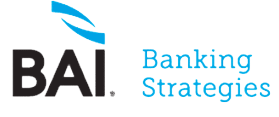By Nathan Stovall
Even with the prospect of added regulatory scrutiny, marketplace lenders plan to pursue more partnerships with banks.
Marketplace lenders increased partnerships with retail banks in 2015, and many of the lenders have said they expected those relationships to increase in 2016. Alternative lenders like OnDeck Capital Inc., LendingClub Corp., Fundation Group LLC, Prosper Marketplace Inc. and Funding Circle USA Inc. have all partnered with retail banks. Executives from several of those companies and other marketplace lenders said Feb. 11 at the KBW Winter Financial Services Symposium that the partnerships are attractive because traditional banks have access to a larger customer base, while the marketplace lenders help originate loans in a more user-friendly and cost-effective manner.
Sam Graziano, CEO at Fundation Group, an online provider of small business loans, said at the KBW event that banks do not originate small business credit in a very efficient manner, but they have far greater access to customers than alternative lenders. Fundation has partnered with Regions Financial Corp. and serves as the online small business loan origination channel for the Birmingham, Ala.-based bank. Graziano said his firm can improve the customer experience, while lowering the cost of origination for the bank.
Graziano also highlighted the partnership between JPMorgan Chase & Co. and OnDeck, another online small business lender. The Fundation executive said the joint venture between those two companies was interesting and noted that JPMorgan can use OnDeck’s scoring program to access more customers.
Andrew Deringer, vice president and head of financial institutions at LendingClub, told a similar story, saying that the partnerships lower the cost of origination for banks while improving the customer experience “dramatically.” He said at the conference many customers no longer want to connect with their financial institution through traditional means and would prefer an online option.
Ron Suber, president of Prosper Marketplace, said close relationships with banks are a core part of his firm’s operations. He noted that five banks invested in Prosper when it raised $165 million in April 2015. Banks also purchase loans from Prosper and retain those credits on their balance sheets, while in other cases they have packaged and securitized those loans to investors.
“I think you’re going to see more and more of us work with banks,” Suber said at the event.
Partnering with a bank requires more of a marketplace lender than simply signing a contract. The FDIC recently emphasized that banks need to identify risks when partnering with marketplace lenders. The federal regulator stressed that the banks might lack extensive enough historical credit quality data of loans originated by the marketplace lenders due to their short tenures. The agency further said banks need to take into consideration marketplace lenders’ compliance with fair lending laws, anti-money-laundering rules and consumer protection requirements, among other applicable regulations.
The Federal Reserve has highlighted similar risks that the partnerships can present to banks. While the Fed has acknowledged that partnerships can offer an opportunity for banks, it has noted that banks must consider regulatory compliance implications of the joint ventures.
Marketplace lending executives at the KBW event were fully aware of the regulatory risk that comes when partnering with banks. The executives emphasized that they view compliance with bank regulation as a prerequisite for joint ventures.
LendingClub’s Deringer said one common misconception about marketplace lenders is that they operate “in the shadows” without regulatory oversight. Deringer said he is familiar with bank regulation, having previously served as a bank examiner for the Federal Reserve. He also noted that he spent more than 16 weeks last year in various examinations with the firm’s bank partners. By partnering with banks, LendingClub is effectively inviting all the regulation banks face unto itself, he said.
“You have to get it right. You can’t sacrifice the reputation of the bank. You can’t sacrifice the reputation of our platform,” Deringer said.
Rana Mookherjee, adviser, capital markets at Funding Circle, said he has spent considerable time, money and energy creating a comprehensive regulatory framework for his firm. He said any marketplace lender looking to partner with a bank has to meet the standards of any vendor to a bank, requiring them to adhere to vendor management information security provisions.
Fundation’s Graziano views his relationship with banks as “regulation by association.” He noted that regulators simply view his firm as an extension of the bank in question.
Nino Fanlo, president and CFO at Social Finance Inc., stressed that his firm sees compliance with bank regulation as an essential part of its business. He noted that the third employee hired at SoFi was its general counsel. He said the firm speaks with Eugene Ludwig, founder and CEO of Promontory Financial Group and former head of the OCC, on a weekly basis. Fanlo added that it is an unusual week where he doesn’t speak with representatives from the White House, Congress and the CFPB.
“It’s the cost of doing business. You have to get an A in the class or you don’t go on,” Fanlo said at the event.
More News
Visa boasts of fintech Fast Track success
May 14, 2020
New York City Credit Program Aims to Help Female Entrepreneurs
November 14, 2019
Import/Export SMBs Introduced to Fintech Lending Options
August 7, 2019
Online Loans You Can Take To The Bank
April 23, 2019
Case study: Citizens Bank – fintech friendly
February 19, 2019
2018 Best of FinXTech Awards Finalists Announced
March 29, 2018
Citizens Digitizes SMB Lending Process With Fundation
November 6, 2017
Park Bank Announces Expansion of Small Business Lending Efforts
November 2, 2017
Defining, Adopting and Executing on Fintech
September 5, 2017
Fundation CEO Talks Partnership Strategy
August 4, 2017
Fundation works with, not in place of, banks
April 3, 2017
Fundation Secures Credit Facility from MidCap Financial
March 21, 2017
Where the money is: A small business lending gap
March 3, 2017
Q&A Break with Sam Graziano, CEO of Fundation
January 18, 2017
Fintech Ideas Festival Rapid Fire Emerging Tech Panel
January 17, 2017
Citizens Bank Next To Take The Leap With Alt-Lender
December 21, 2016
Regions Eyes Small Business Loans in Latest Tech Deal
September 22, 2016
Is The Future Of Alt-Lending Playing Well With Others?
August 30, 2016
Best Alternative Small Business Loans 2016
May 27, 2016
Frenemies In the Marketplace
April 29, 2016
Bigger Bang In Small Biz
April 1, 2016
How To Get A Small Business Loan (Webinar)
March 29, 2016
Fundation Expands Small Business Lending
March 4, 2016
Top 25 Financial Blogs for Small Businesses – 2016
February 22, 2016
CEO Sam Graziano on MSNBC’s Your Business
February 18, 2016
Bank Branches Are Still Good for at Least One Thing
February 17, 2016
Fundation Named Finalist In 2016 Stevie® Awards
February 12, 2016
A “Meaningful” Platform-Bank Partnership?
January 6, 2016
Late on a Loan Payment? How To Do Damage Control
October 21, 2015
Regions Inks Unique Deal to Tap Booming Fintech Industry
October 13, 2015
Best Alternative Small Business Loans – 2015
October 6, 2015
Fintech strikes again; Regions partners with start-up
October 5, 2015
Investing in Alternative Lending?
May 1, 2015















